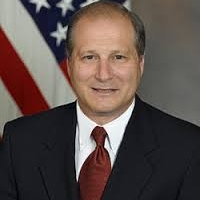

9:00 am EST - 10:15 am EST
Past Event
On Monday, November 9, the Foreign Policy program at Brookings hosted a webinar to consider the implications of the 2020 U.S. presidential election for the future of American foreign policy. The discussion was moderated by Thomas Wright, director of the Center on the United States and Europe and Senior Fellow in the Project on International Order and Strategy.
Opening the panel, Wright asked a prescient question for the weeks leading up to the January Senate run-off elections in Georgia: if Republicans retain control of the Senate, how will President-Elect Joe Biden manage a divided government? Biden often claims that his superpower is an ability to work across the aisle. What impact will his ability have on U.S. foreign policy?
Tamara Wittes, senior fellow in the Center for Middle East Policy at Brookings, argued that Biden’s determination to empathize and mastery of common diplomacy will serve him well. Biden “sees politics as the art of the possible” and will focus on practical foreign policy problems. However, the challenge he faces now is how much the ground has shifted since his stint as vice president, particularly in the Middle East and with regards to China.
These changes also present an opportunity. There is now bipartisan support to address the challenges posed by China. Victoria Nuland, nonresident senior fellow at Brookings and senior counselor at the Albright Stonebridge Group, suggested that the Biden administration need not roll back existing tariffs until it is offered something in return. The next administration will have inherited effective leverage from the Trump administration.
Eric Edelman, a former American diplomat and current distinguished practitioner-in-residence at Johns-Hopkins-SAIS, agreed that Biden should use the leverage he will inherit — with regards to Iran as well as China. The Trump administration’s so-called maximum pressure campaign “built a lot of pressure on the Iranian economy.” He suggested that the best approach for Biden would be to consult with allies and develop a common strategy to encourage the Iranians to come the table and establish a better deal, especially since rushing back into the Joint Comprehensive Plan of Action would earn him enemies in the Congress.
Edelman also emphasized that the repudiation of Trumpism hoped for by Democrats and Republican never-Trumpers failed to materialize. Though Biden won the presidency, the Democrats’ narrow hold on the House of Representatives ratified the idea that the election was a repudiation of the messenger and not the message.
The true challenge for the Biden administration will therefore begin with persuading Americans that global reengagement and multilateralism is a good thing. The rest of the world is ready for a more orderly, stable, and predictable United States, but an effective foreign policy will begin with building a platform this at home.
Panelist



Witney Schneidman
April 17, 2024

Vanda Felbab-Brown
April 16, 2024

Michael E. O’Hanlon, Ivan Kanapathy, Rorry Daniels, Thomas Hanson, Ryan Hass, Patricia M. Kim, Emilie Kimball
April 16, 2024